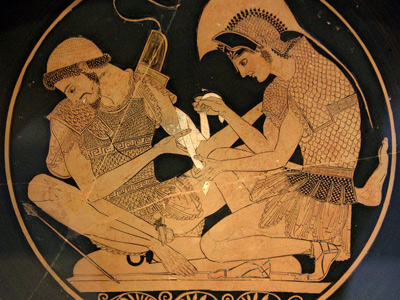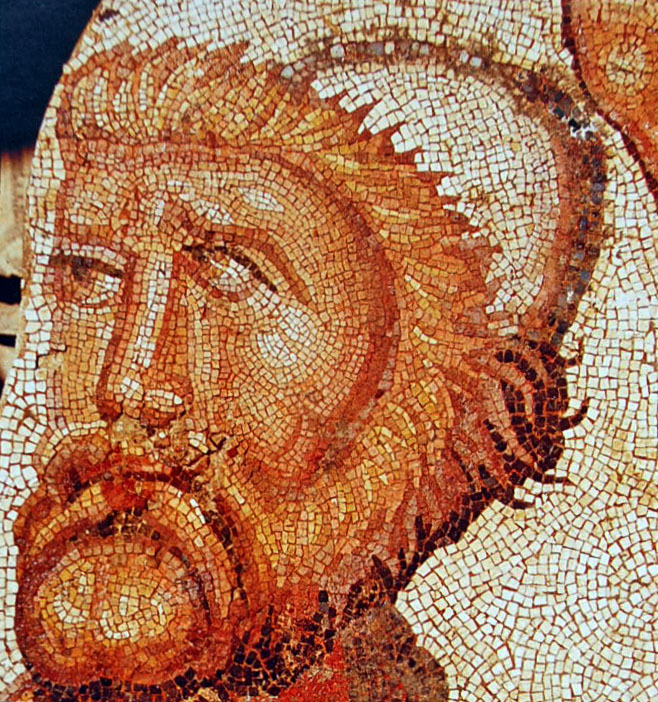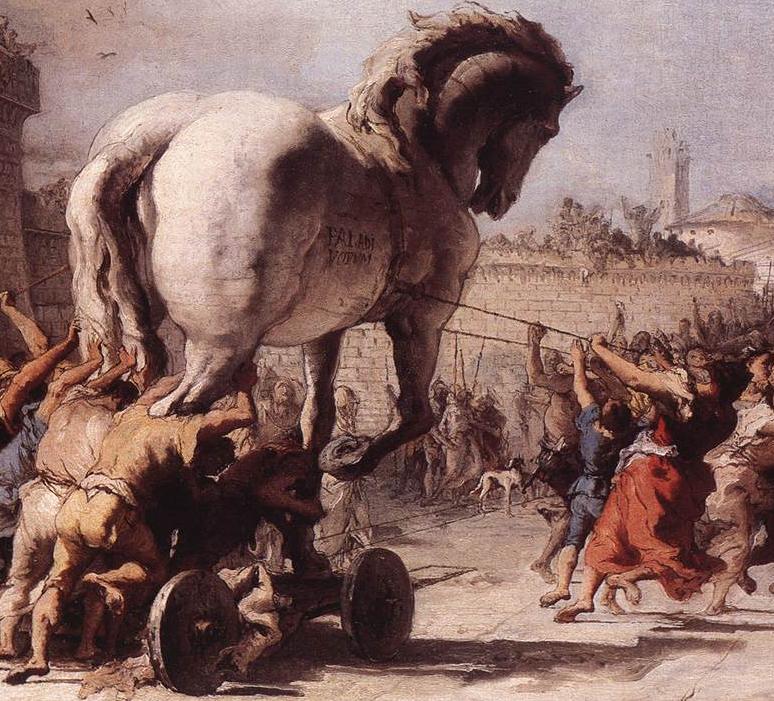Trojan War (1194–1184 BC)
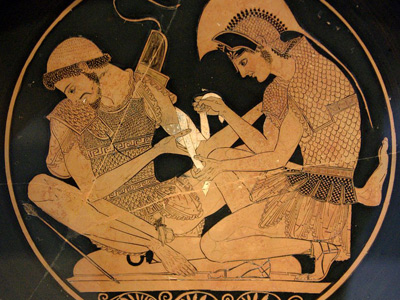
Sack of Troy
The Achaeans entered the city and killed the sleeping population. A great massacre followed which continued into the day.
Blood ran in torrents, drenched was all the earth,
As Trojans and their alien helpers died.
Here were men lying quelled by bitter death
All up and down the city in their blood
The Trojans, fuelled with desperation, fought back fiercely, despite being disorganized and leaderless. With the fighting at its height, some donned fallen enemies' attire and launched surprise counterattacks in the chaotic street fighting. Other defenders hurled down roof tiles and anything else heavy down on the rampaging attackers. The outlook was grim though, and eventually the remaining defenders were destroyed along with the whole city.

Neoptolemus, son of Achilles, kills King Priam (detail of Attic black-figure amphora, 520–510 BC)

Neoptolemus, son of Achilles, kills King Priam (detail of Attic black-figure amphora, 520–510 BC)
( Click image to enlarge)
Neoptolemus killed Priam, who had taken refuge at the altar of Zeus of the Courtyard. Menelaus killed Deiphobus, Helen's husband after Paris' death, and also intended to kill Helen, but, overcome by her beauty, threw down his sword and took her to the ships.
Ajax the Lesser raped Cassandra on Athena's altar while she was clinging to her statue. Because of Ajax's impiety, the Acheaens, urged by Odysseus, wanted to stone him to death, but he fled to Athena's altar, and was spared.
Antenor, who had given hospitality to Menelaus and Odysseus when they asked for the return of Helen, and who had advocated so, was spared, along with his family. Aeneas took his father on his back and fled, and, according to Apollodorus, was allowed to go because of his piety.
The Greeks then burned the city and divided the spoils. Cassandra was awarded to Agamemnon. Neoptolemus got Andromache, wife of Hector, and Odysseus was given Hecuba, Priam's wife.
The Achaeans threw Hector's infant son Astyanax down from the walls of Troy, either out of cruelty and hate or to end the royal line, and the possibility of a son's revenge. They (by usual tradition Neoptolemus) also sacrificed the Trojan princess Polyxena on the grave of Achilles as demanded by his ghost, either as part of his spoil or because she had betrayed him. Aethra, Theseus' mother, and one of Helen's handmaids, was rescued by her grandsons, Demophon and Acamas.
HISTORY
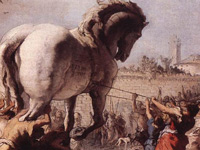
RESOURCES
This article uses material from the Wikipedia article "Trojan War", which is released under the Creative Commons Attribution-Share-Alike License 3.0.
© Stories Preschool. All Rights Reserved.
